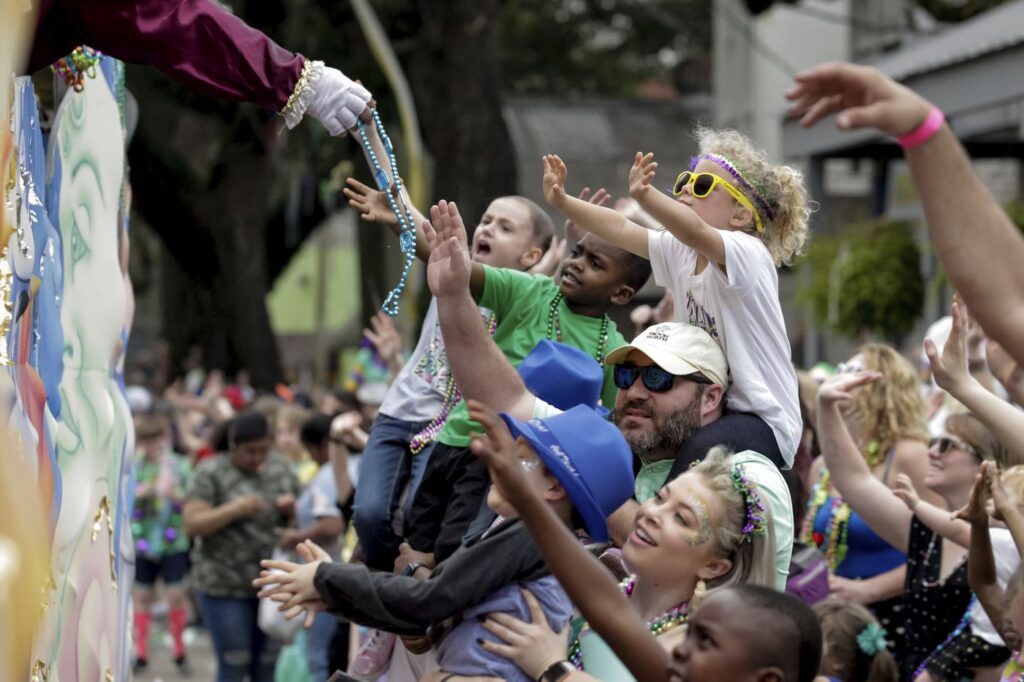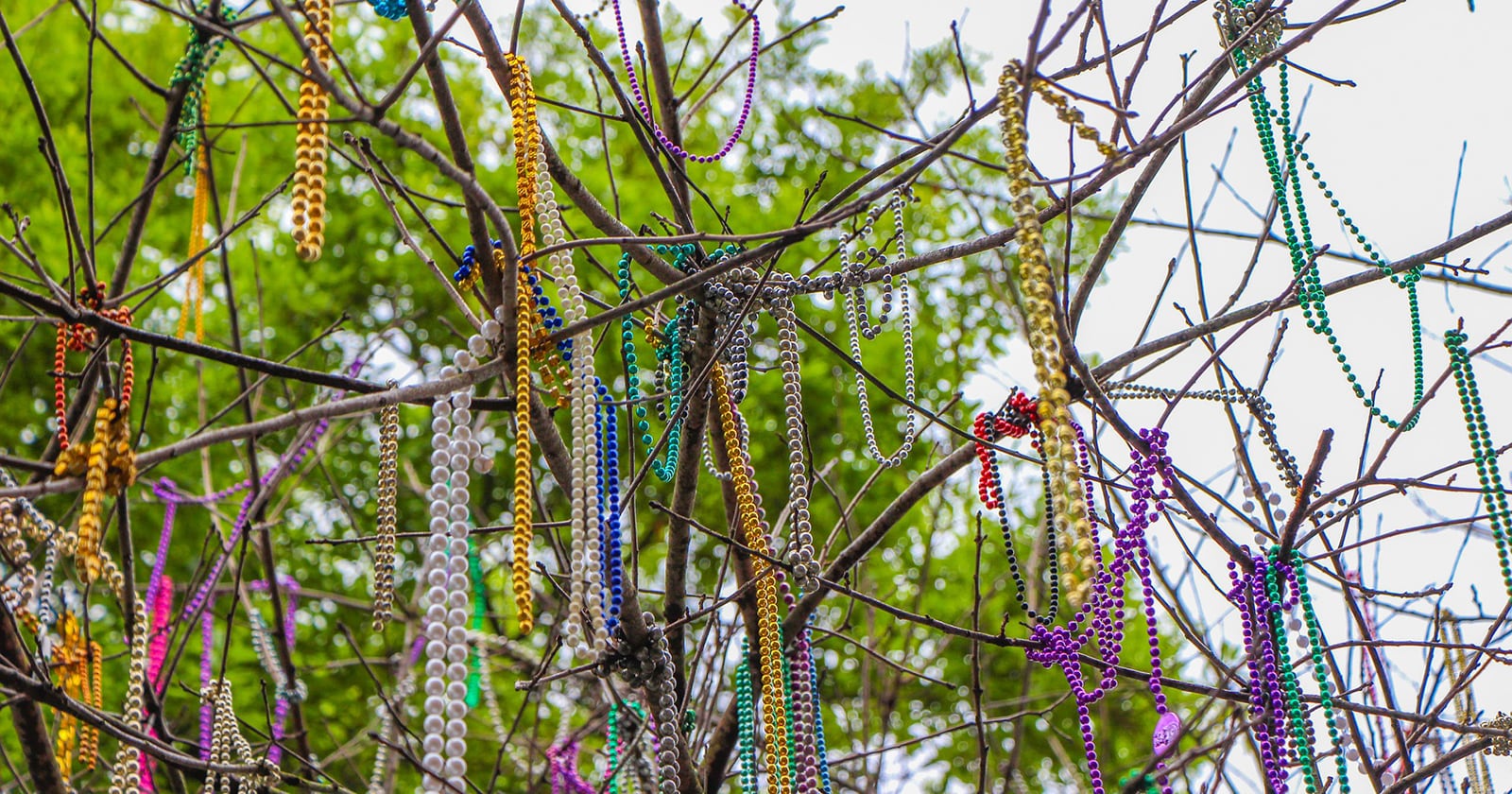Mardi Gras in the USA is celebrated every winter along the Gulf Coast from Galveston Texas to Pensacola Beach Florida. The first Fat Tuesday Carnivals here took place in Mobile Alabama, but when people think of going down to the Mardi Gras they are usually thinking of New Orleans!
In New Orleans, the Mardi Gras season begins on the 6th of January or Twelfth Night — the 12th and final night of Christmas. From this night there are parades and extravagant Mardi Gras balls every night for weeks with even more parades and balls on the weekends. Each parade and ball is put on by its own Carnival Krewe. Every Krewe has its own name, theme, and traditions. Like the Krewe of Bacchus celebrating wine and good times, or the Krewe of Barkus which holds a fun dog parade. Individual krewes organize their parade and their party sometime between Twelfth Night on January 6 and the time when the Grand Marshals —or Kings—of the Zulu parade and the Rex parade leave their carnival balls to greet each other in the middle of the street on the night of Fat Tuesday. Their meeting marks the end of Carnival (Fat Tuesday moves around the calendar every year, but you’re sure to find it on a Tuesday sometime from early February to early March. Originally, Fat Tuesday marked the last day to consume all the meat and fat in your larder before the beginning of the 46-day Lenten fast on the Christian calendar, but Mardi Gras festivities have become secular celebrations around the world)

There’s something for everyone at the Mardi Gras in New Orleans and all along the Gulf Coast. Families gather along the parade routes away from the raucous noise of Bourbon Street in the French Quarter for picnics, music, and catching plastic beads and trinkets. Masked riders throw trinkets from brightly decorated floats to children of all ages. Fat Tuesday, or Mardi Gras Day, finds many people wearing fancy masks and fun costumes. This is just called “masking” (and it has nothing to do with COVID-19). Masking frees people from their typical constraints and many find the safety to express the truth while the good times roll.
Mardi Gras is meant to be fun and inclusive. But in our revels, we have to recall that Carnival is a foreign tradition brought to this continent by colonizers and equity has historically not been extended to everyone. As we co-create new traditions, we can also do better.
There are as many Mardi Gras traditions in New Orleans as there are Krewes and other groups, who organize every Mardi Gras parade and ball (Read more about New Orleans Mardi Gras traditions at the city’s official site).
If you were to form a Mardi Gras Krewe to reflect on the next 20 years of the Agile Manifesto what would your parade be like? How will you decorate your parade float? Will it be pretty? Messy? Silly? Satirical? Or, something else?
What’s the name of your Krewe, and who do you invite to be in it?



![[Case Study] Lessons from descaling 25 Scrum teams](https://www.agilealliance.org/wp-content/uploads/2024/12/descaling-teams-1200x630-1-150x150.jpg)



![[Case Study] Lessons from descaling 25 Scrum teams](https://www.agilealliance.org/wp-content/uploads/2024/12/descaling-teams-1200x630-1-300x158.jpg)

